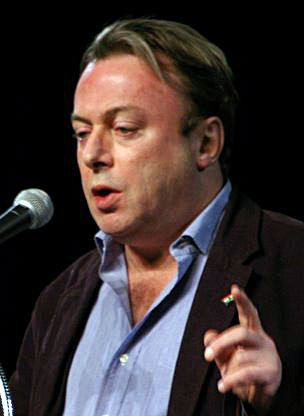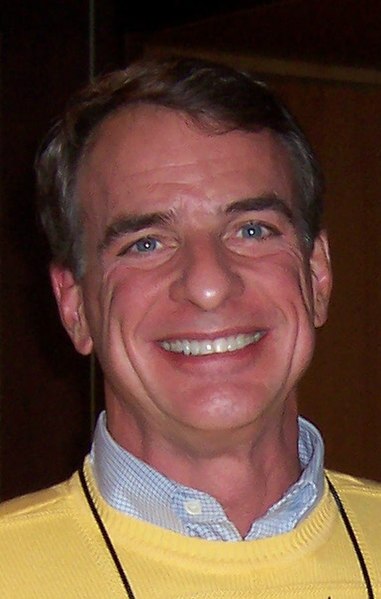The Does God Exist debate took place in front of a sold out crowd at Biola University on April 4, 2009. Over 4,200 people saw it live on-campus and an additional 11,000 viewed it from around the globe through a special webcast. Don’t miss this debate between one of the most knowledgable and outspoken Atheists in the last century, Christopher Hitchens; and perhaps one of the most notable Christian philosophers Dr. William Lane Craig.
A bit about Christopher Hitchens (taken directly from Wikipedia):
 Christopher Eric Hitchens (13 April 1949 – 15 December 2011) was a British-American[2][3] author, polemicist, debater, and journalist.[4] Hitchens contributed to New Statesman, The Nation,The Atlantic, The London Review of Books, The Times Literary Supplement and Vanity Fair. He was the author of twelve books and five collections of essays, and concentrated on a range of subjects, including politics, literature and religion. A staple of talk shows and lecture circuits, his confrontational style of debate made him both a lauded and controversial figure. Known for hiscontrarian stance on a number of issues, he excoriated such public figures as Mother Teresa, Bill Clinton, Henry Kissinger, Lady Diana, and Pope Benedict XVI. He was the older brother of authorPeter Hitchens.
Christopher Eric Hitchens (13 April 1949 – 15 December 2011) was a British-American[2][3] author, polemicist, debater, and journalist.[4] Hitchens contributed to New Statesman, The Nation,The Atlantic, The London Review of Books, The Times Literary Supplement and Vanity Fair. He was the author of twelve books and five collections of essays, and concentrated on a range of subjects, including politics, literature and religion. A staple of talk shows and lecture circuits, his confrontational style of debate made him both a lauded and controversial figure. Known for hiscontrarian stance on a number of issues, he excoriated such public figures as Mother Teresa, Bill Clinton, Henry Kissinger, Lady Diana, and Pope Benedict XVI. He was the older brother of authorPeter Hitchens.
Long describing himself as a socialist, Hitchens began his break from the established political left after what he called the “tepid reaction” of the Western left to the Rushdie Affair, followed by the left’s embrace of Bill Clinton, and the “anti-war” movement’s opposition to intervention in Bosnia-Herzegovina—though Hitchens did not leave his position writing for The Nation until, post-9/11, he felt the magazine had arrived at a position “that John Ashcroft is a greater menace than Osama bin Laden.”[5] The September 11 attacks “exhilarated” him, bringing into focus “a battle between everything I love and everything I hate,” and strengthening his embrace of an interventionist foreign policy which challenged “fascism with an Islamic face“.[6] His numerous editorials in support of the Iraq War caused some to label him a neoconservative, although Hitchens insisted he was not “a conservative of any kind”, and his friend Ian McEwan described him as representing the anti-totalitarian left.[7][8] Indeed, in a 2010 BBC interview, he stated that he was ‘still a Marxist‘.[9]
A noted critic of religion and an antitheist, he said that a person “could be an atheist and wish that belief in god were correct”, but that “an antitheist, a term I’m trying to get into circulation, is someone who is relieved that there’s no evidence for such an assertion.”[10] According to Hitchens, the concept of a god or a supreme being is a totalitarian belief that destroys individual freedom, and that free expression and scientific discovery should replace religion as a means of teaching ethics and defining human civilisation. His anti-religion polemic, New York Times Bestseller, God is not Great – How Religion Poisons Everything, sold over 500,000 copies.
Hitchens died on 15 December 2011, from complications arising from oesophageal cancer, a disease that he acknowledged was more than likely due to his lifelong predilection for heavy smoking and drinking.[11]
A bit about William Lane Craig (taken directly from Wikipedia):
 William Lane Craig (born August 23, 1949[1]) is an American Christian apologist[2] and analytic philosopher.[3] He works in the philosophy of religion, philosophy of time, and the defense of Christian theism.[4] He revived interest in the Kalām cosmological argument with his 1979 publication of The Kalām Cosmological Argument, an argument for the existence of God with origins in medieval Islamic scholasticism.[2][5] In theology, he has also defended Molinism and the belief that God is, since Creation, subject to time.[2][6][7]
William Lane Craig (born August 23, 1949[1]) is an American Christian apologist[2] and analytic philosopher.[3] He works in the philosophy of religion, philosophy of time, and the defense of Christian theism.[4] He revived interest in the Kalām cosmological argument with his 1979 publication of The Kalām Cosmological Argument, an argument for the existence of God with origins in medieval Islamic scholasticism.[2][5] In theology, he has also defended Molinism and the belief that God is, since Creation, subject to time.[2][6][7]
Craig has authored or edited a number of books, including The Cosmological Argument from Plato to Leibniz (1980), Theism, Atheism, and Big Bang Cosmology (with Quentin Smith, 1993),Philosophical Foundations for a Christian Worldview (with J.P. Moreland, 2003), Reasonable Faith: Christian Truth and Apologetics (2008), and The Blackwell Companion to Natural Theology(with J.P. Moreland, 2009).
Craig graduated from East Peoria Community High School in 1967 before attending Wheaton College, Illinois, where he received a Bachelor of Arts degree in communications in 1971 and twosumma cum laude master’s degrees from Trinity Evangelical Divinity School in Deerfield, Illinois, in 1975, in philosophy of religion and ecclesiastical history and in the History of Christian Thought.[1] He earned a Ph.D. in philosophy under John Hick at the University of Birmingham, England, in 1977 and a D.Theol. under Wolfhart Pannenberg at the University of Munich, in the former West Germany, in 1984.[8]
Does God Exist? DevoutNone wants to hear your opinion. Watch the debate and then make your own educated decision by commenting below.
[gard]

Comments are closed.